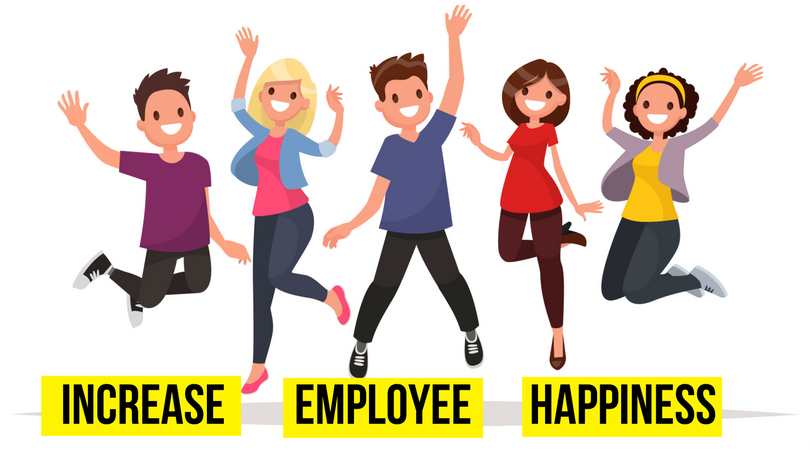Performance Review Meetings : New Age Toxicity
- Santhosh Sivaraj

- Sep 29, 2023
- 3 min read

Performance review meetings in corporate and organizational settings have long been dreaded events, but it seems that in recent years, they have taken a nosedive from bad to worse. What was meant to be a constructive evaluation of employee performance has often devolved into a toxic and degrading experience.
The Descent into Toxicity
Performance reviews have historically been a source of anxiety for employees, but their descent into toxicity in recent years can be attributed to several factors:
1. Pressure to Quantify Everything
In today's hyper-competitive business environment, organizations have become obsessed with metrics and key performance indicators (KPIs). Managers, in turn, feel pressured to quantify every aspect of an employee's performance. This narrow focus on numbers often ignores the intangible qualities that make a great employee.
2. Short-Termism and Instant Gratification
The relentless pursuit of short-term gains has led to a culture where instant gratification is prioritized over long-term growth. Managers are increasingly pressured to produce immediate results, leading to impatient and harsh assessments of employee performance.
3. Lack of Managerial Training
Many managers are thrust into leadership roles without adequate training in how to conduct performance reviews effectively. This lack of preparation can lead to poor communication skills, a lack of empathy, and a tendency to resort to harsh criticism.
4. Fear of Consequences
Employees often fear the repercussions of a poor performance review, such as lost promotions or even job security. This fear can create an atmosphere of mistrust and hinder open communication.

The Toxicity Trap
When performance reviews become increasingly degrading and toxic, it sets in motion a chain reaction of harm within the organization:
1. Erosion of Morale
Constant criticism and negativity erode employee morale and enthusiasm. When employees feel demoralized, they are less likely to put in their best effort, leading to decreased productivity and innovation.
2. Deterioration of Team Dynamics
A toxic review culture can poison team dynamics. Instead of collaborating and supporting each other, team members may become competitive or even resentful, creating a hostile work environment.
3. High Employee Turnover
Employees subjected to harsh and demoralizing performance reviews are more likely to seek opportunities elsewhere. High turnover is not only costly but also disrupts organizational stability and continuity.
4. Impact on Mental Health
The stress and anxiety caused by toxic performance reviews can have a severe impact on employees' mental health. This can lead to burnout, absenteeism, and decreased overall well-being.
5. Tragic Consequences
It is essential to recognize that, in extreme cases, individuals subjected to extreme disrespect during performance reviews have tragically taken their own lives. Such incidents are a stark reminder of the devastating impact that a culture of degradation can have on an individual's mental and emotional well-being.

The Happy Employee Productivity Connection
Now, let's shift our focus to the positive. Happy employees are not just a nice-to-have; they are a vital component of a productive workforce. Here's why:
1. Motivation and Engagement
Happy employees are intrinsically motivated to do their best. They feel a sense of purpose and are more engaged in their work. This leads to increased productivity and a willingness to go the extra mile.
2. Innovation and Creativity
A positive work environment fosters creativity and innovation. When employees feel valued and supported, they are more likely to contribute new ideas and solutions to challenges.
3. Collaboration and Teamwork
Happy employees are more likely to collaborate effectively and work well with their colleagues. They contribute to a harmonious work atmosphere, which in turn enhances team performance.
4. Employee Retention
Organizations that prioritize employee happiness tend to have lower turnover rates. Retaining experienced employees is not only cost-effective but also ensures continuity and stability.
Conclusion: Prioritizing Happiness for Productivity
In conclusion, the degrading nature of performance review meetings in corporate and organizational settings is a concerning trend that harms both individuals and the organization as a whole. Toxicity breeds low morale, deteriorating team dynamics, high turnover, and mental health issues.
To counteract this trend, organizations must prioritize the happiness and well-being of their employees. A happy employee is a motivated, engaged, innovative, and collaborative employee. By fostering a positive work culture and conducting performance reviews with empathy and respect, organizations can create an environment where productivity thrives, and employees are genuinely excited to contribute their best efforts. In the end, a happy employee is not just a slogan; it's a recipe for sustained success.





Comments